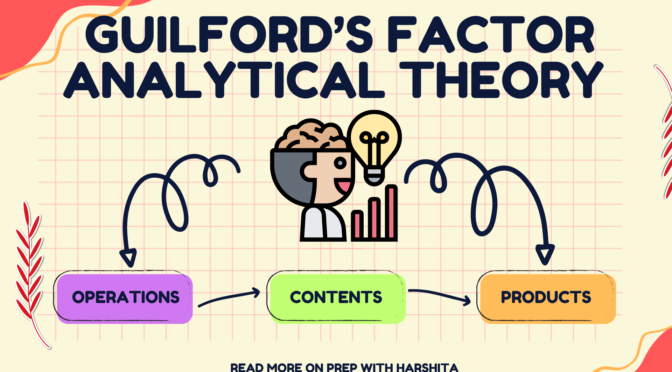J.P. Guilford was a psychologist known for his extensive work on intelligence and creativity. Guilford’s factor analytical theory, proposed in the mid-20th century, aimed to provide a more comprehensive understanding of human intelligence by breaking it down into multiple components. Unlike Spearman’s two-factor theory, Guilford proposed a model with multiple factors.
Guilford’s factor analytical theory consists of three main components:
Operations:
Guilford identified five types of mental operations or cognitive abilities:
- Cognition (perception, memory, convergent and divergent production)
- Memory (recognition, recall)
- Divergent Production (ideational fluency, ideational flexibility, originality)
- Convergent Production (cognition similar to convergent production, but it involves finding the single correct solution)
- Evaluation (evaluation of statements, facts, or problems)
Also Read: Glaser Basic Teaching Model


https://www.youtube.com/channel/UCyt2dGrKTf9KpBk1jdUl3oA